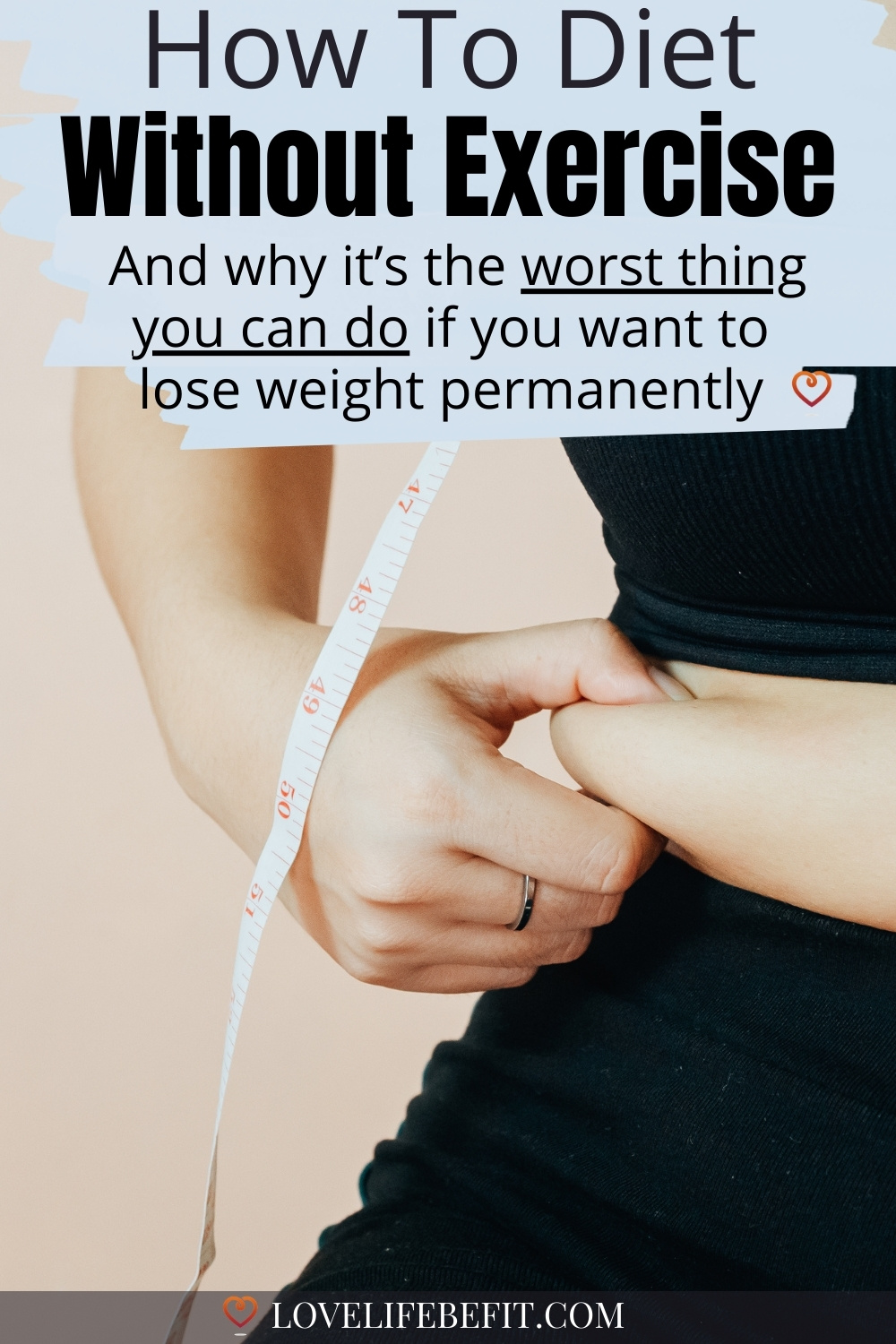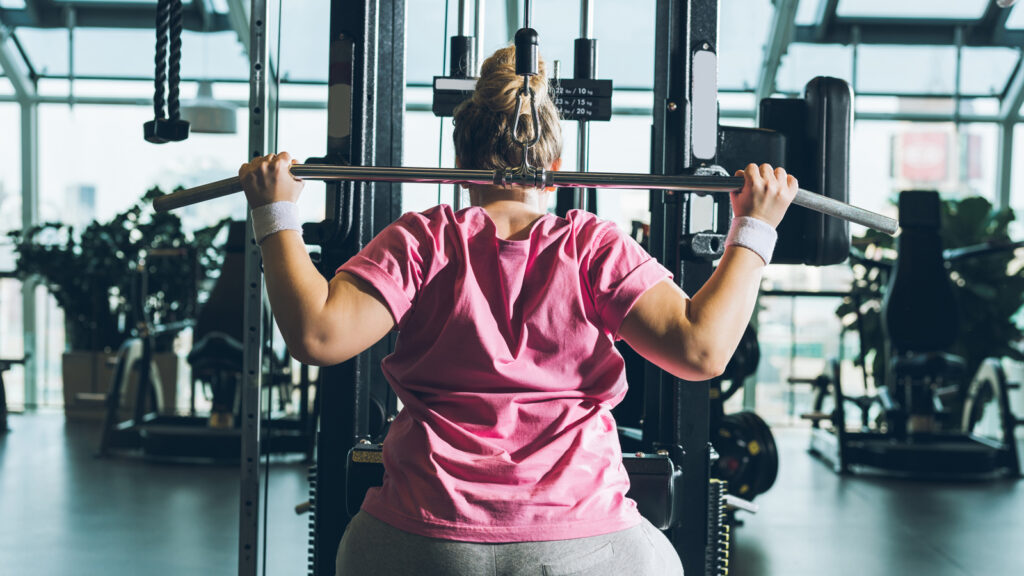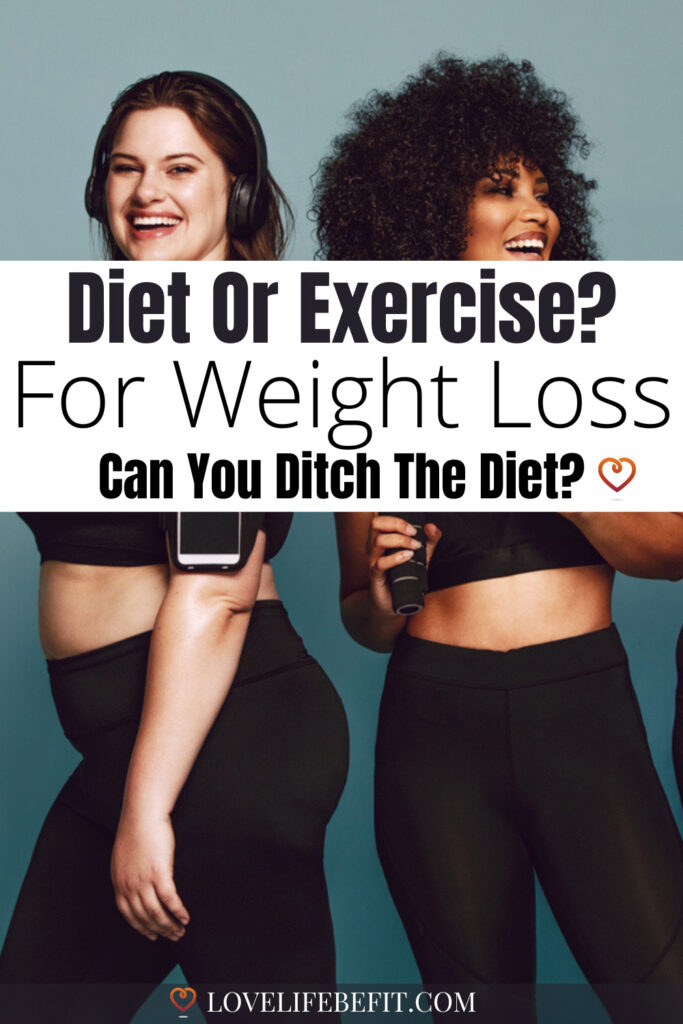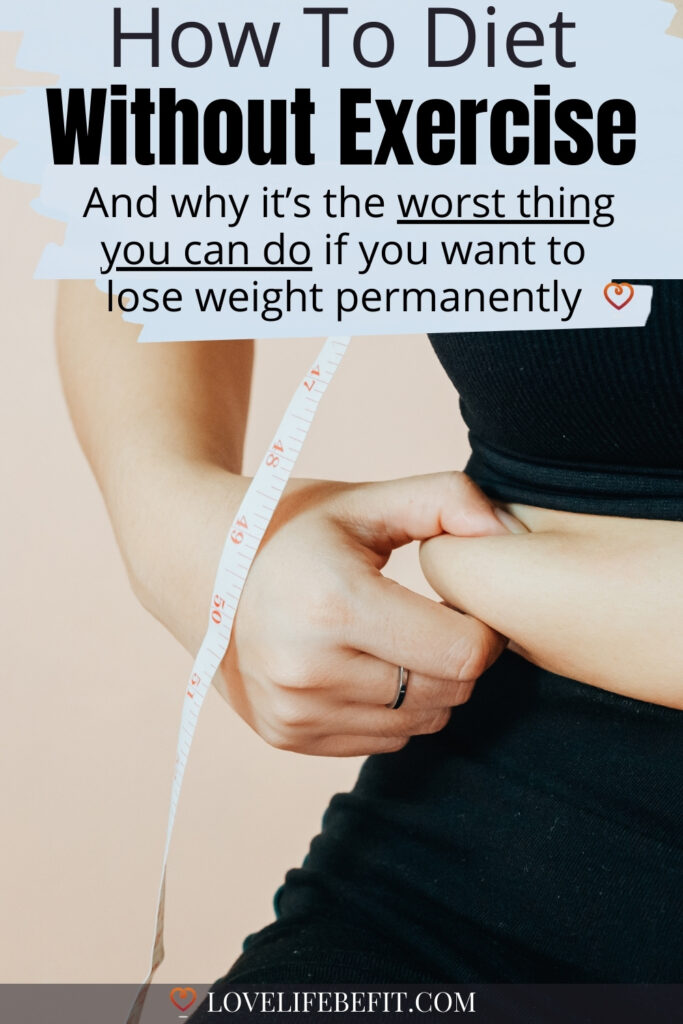Diet Or Exercise: Which Is Best To Lose Weight?
You can’t outrun a bad diet goes the saying. I know a few ultra runners who would beg to differ, but for most people it’s true. If you want to lose weight and you’re choosing between diet or exercise, generally the food you eat will have a bigger impact on your waistline.
But the answer is a lot more complex than floggers of the latest fad diet would like to admit. Reducing weight loss to calories in versus calories out is a very simplistic way of looking at how we lose weight.
It’s mainly wrong.
Find out more about how to diet without exercise and why it’s the worst thing you can possibly do to your body if you want to lose weight and keep it off permanently.

What’s More Important: Diet Or Exercise?
- Diets may get faster results but often when the diet stops the weight rebounds.
- Exercise can help with weight loss but only if you don’t replace the calories burned by eating more.
Which Is Best For Weight Loss?
In simple terms, weight loss needs a calorie deficit. Burn more calories than you consume to get results.
Your daily energy expenditure is made up of:
- Basal Metabolic Rate (BMR) – the energy used to keep your body functioning.
- Thermic effect of food (TEF) – calories burned eating (it’s negligible).
- Non-exercise activity thermogenesis (NEAT) – everything from brushing your teeth to making a cup of coffee.
- Calories burned during exercise.
Increasing your physical activity is the easiest way to burn more calories. But following a walking for weight loss plan or running 5 miles every day doesn’t always get the results you want.
It’s easy to eat too much.
Run 5 miles and burn 500 calories – terrific. Blow that calorie deficit on a post-run chocolate brownie? Not so good.
An extra treat can quickly wipe out the calories you’ve burnt during your exercise session. That’s why diets will always get faster results if you’re trying to lose weight.

Fast Weight Loss
It’s understandable. Sustained weight loss is slow and boring. It doesn’t get you beach body ready in two weeks. Or help you drop two dress sizes overnight.
Everyone loves a quick result! Those clickbait articles about losing 10 pounds fast get all the attention.
So it’s tempting to try a restrictive diet. And to begin with, you love the results. You lose several pounds and feel great.
But it isn’t just fat you’re losing. It’s mainly water weight and lean muscle mass – not the ideal loss for long-term health or body composition goals.
Plus restrictive diets are difficult to follow. Whether it’s controlling calories, eliminating carbs, or any other food groups, most people can only keep it up for short periods.
Once the diet stops the weight rebound begins. You can spend your whole life trying to diet. Every time the strict diet lapses, the weight piles back on and you’re back at square one.
In the US, almost 50% of the adult population will try to lose weight each year. The most popular methods are exercising (62.9%) and eating less food (62.9%), followed by consuming more fruits, vegetables, and salads (50.4%).
Most of the time it doesn’t work. So where is everybody going wrong?

Eating Fewer Calories But Not Losing Weight
These are some of the reasons why a restrictive diet doesn’t work or why your weight loss is slow:
#1 The Less You Weigh The Fewer Calories Your Body Needs
Your daily energy needs are based partly on how much you weigh. As your weight drops, you need less calories to sustain all your body functions and activities.
That calorie deficit you’re targeting, such as 500 calories a day, quickly becomes unrealistic. Unless you’re also exercising, your calorie intake is too low to maintain.
#2 Losing Muscle Weight
With weight loss purely by dieting, you don’t just lose body fat. Instead, there’s a high chance you’re depleting your muscle mass.
This in turn reduces your daily calorie needs and you end up in the dreaded zone of skinny fat.
Your diet can make things worse. Without muscle, your BMR will be lower – your body needs less energy to function every day.
#3 You Hit A Weight Loss Plateau
With significant weight loss, your body has to make some adjustments. So it becomes incredibly efficient at burning calories!
Your body adapts and gets by on a smaller number of calories. This makes weight loss so much harder if the only tool you have is restricting your calorie intake.
When you’re following an exercise program, the exercise routine gets more challenging as you get fitter. You up the ante to lose more weight.
But with dieting, once you hit the plateau, you’re stuck with the same caloric intake that’s no longer working.
#4 Your Body Tries To Replace Its Fat Stores
This is a tough one. Once you’ve lost weight, your body will do everything it can to regain those fat stores.
It’s called adaptive thermogenesis where your body will use all the tricks at its disposal, from metabolic to behavioral responses, to try and get you to regain weight.
The only way around this is by building lifelong good habits to keep the weight off. That’s why you need to work on both diet and exercise.

How Exercise Helps With Weight Loss
So let’s look at why exercise is better for long-term health goals and sustainable weight loss.
Regular exercise is recommended by the Centers for Disease Control and Prevention (CDC) to reduce the risk of heart disease, type 2 diabetes, obesity, and some cancers.
It’s good for reducing high blood pressure and can help with mental health conditions. If you want to improve your overall health, being physically active is essential.
But what about weight loss?
#1 Exercise Is An Easy Way To Increase Calorie Burn
25% of US adults never exercise and 60% don’t manage the recommended physical activity of 150 minutes per week of moderate-intensity activity and 2 days a week of strength training activities.
But exercise is the best way to burn more calories, improve your heart health and build muscle.
You don’t have to be a fitness freak to exercise! For the average person, exercising more can be as easy as walking 30 minutes a day.
That 30-minute walk can burn as much as 200 calories or 1400 calories a week.
#2 Exercise Builds Muscle
Regular exercise can improve your body composition. Walking helps build strong legs and a strong core.
Add resistance training or strength training to build lean muscle, which in turn increases your BMR and calorie burn.
The best part is that you don’t have to go to the gym or buy expensive equipment. You can do bodyweight exercises at home with minimal space and no cost involved.
#3 It’s A Way Of Increasing Metabolism
Exercise increases your metabolism. High-intensity training sessions boost your metabolism for several hours after your workout. You’ll burn more calories all day long making it easier for your body to use fat as fuel.
Hitting your weight loss target is much easier when you’re exercising. Plus it’s easier to stay motivated and build lifelong good habits to help the weight stay off for good.
Try walking 3 miles a day or find out how much you need to run to lose weight.

Focus On Nutrition For Weight Loss
A bad diet can foil even the best fitness plans. So don’t neglect your food choices when trying to lose weight. Both diet and regular exercise are important but it isn’t just how much you eat – good nutrition is important too.
Eating nutrient-dense foods that are high in fiber, lean protein, and complex carbohydrates plus all the vitamins and minerals your body needs can help to keep you full and satisfied.
Highly processed foods contain a lot of sugar, salt, and unhealthy fats. These food choices are high in calories and bad for your waistline. Excess snacking on sweet treats and salty snacks can sabotage all your hard work.
If you really want to reach your weight loss goals, it’s important to focus on both diet and exercise. Eating a balanced diet and regular exercise go hand in hand for optimum health.

How To Avoid Long-Term Weight Gain
Losing weight is not a one-time event. You need to make permanent lifestyle and dietary changes to keep the pounds off for good.
Here are some tips on how to avoid long-term weight gain:
#1 Find An Exercise You Enjoy
If you don’t think you enjoy exercising, you just haven’t found the right exercise yet. There’s something out there for everyone!
It doesn’t have to be walking or running. Try swimming, cycling, yoga, dancing… there are so many different ways to increase your exercise level.
When you try a new exercise – don’t just do it once. It takes a while to get the hang of something. This really applies if you take up running – get to the 9th run before deciding if you enjoy it.
#2 Make Changes To Your Diet Slowly
Don’t change everything at once. You want to build sustainable habits. Maybe one week change your regular morning snack to something a bit healthier.
The next week swap your sugary soft drink for fresh water.
Just keep making little changes. Eventually, they all add up.
Thoughts From Love Life Be Fit
What you eat is always going to be more important than exercise and have a bigger impact on your waistline. But without exercise, it’s extremely hard to hit your weight loss goals.
Exercise builds muscle, provides motivation, and boosts self-esteem. Moving more makes you feel good. It’s essential for preventing bad backs and related aches and pains. Activities such as walking for weight loss burn a lot of calories.
Supplement your exercise by gradually weaning yourself off the worst of your eating habits. Swap out the sugary high-fat items for tasty healthy food, one small step at a time to eat better and reduce your calorie intake.
Making small changes to your diet is a sustainable way to gradually lose weight and keep it off for good.







